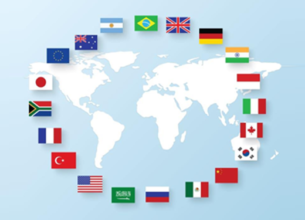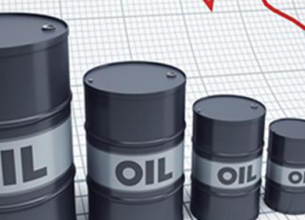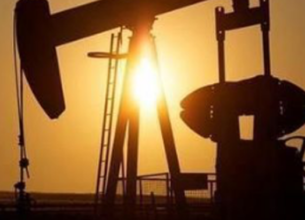OIL PRICE WAR & IMPLICATIONS
11, Apr 2020

Prelims level : International
Mains level : GS-II Important International Institutions, Agencies and fora- their Structure, Mandate.
Context:
- OPEC, Russia and other allies have outlined plans to cut their oil output by more than a fifth.The US, Russia and Saudi Arabia, the world’s top three oil producers, all endorsed the agreement to cut production,
COVID-19 and its impact on Oil market:
- Steps to fight the virus have grounded planes, cut vehicle usage and curbed economic activity.
- This led to a plunge in the global fuel demand by around 30 million bpd, or 30% of global supplies.
- Brent oil prices, which hit an 18-year low last month, were trading at half their level at the end of 2019.
- The planned output curbs by OPEC+ amount to 10 million barrels per day (bpd) or 10% of global supplies, with another 5 million bpd expected to come from other nations to help deal with the deepest oil crisis in decades.
- An unprecedented 15 million bpd cut still won’t remove enough crude to stop the world’s storage facilities quickly filling up.
The U.S an Saudi Arabia
- S. President Donald Trump has threatened Saudi Arabia if it did not fix the oil market’s problem of oversupply.
- S.has warned Riyadh that it could face sanctions and tariffs on its oil, if it did not cut its production.
- The U.S. oil industry with higher costs is struggling with low prices.

The G20 Countries:
- The G20 in a reference to the Opec deal, has said “recognised the commitment of some producers to stabilise energy markets”.
- However, G20 energy ministers did not mention any particular production cuts in a statement released after a virtual summit hosted by Saudi Arabia
- Officials from the Organization of the Petroleum Exporting Countries and Russia have said the scale of the crisis required involvement of all producers.
U.S. DILEMMA:
- The United States, whose output has surged to surpass Saudi and Russian production.
- S. officials have already said U.S. output would fall naturally over two years but have not committed to any cuts.
The G20:
- The G20 is an informal group of 19 countries and the European Union, with representatives of the International Monetary Fund and the World Bank.
- The G20 membership comprises a mix of the world’s largest advanced and emerging economies, representing about two-thirds of the world’s population, 85% of global gross domestic product, 80% of global investment and over 75% of global trade.
- The G20 operates as a forum and not as an organisation. Therefore, it does not have any permanent secretariat or management and administrative structure.
- The members of the G20 are Argentina, Australia, Brazil, Canada, China, France, Germany, India, Indonesia, Italy, Japan, Republic of Korea, Mexico, Russia, Saudi Arabia, South Africa, Turkey, the United Kingdom, the United States, and the European Union.
The Organization of the Petroleum Exporting Countries (OPEC):
- The Organization of the Petroleum Exporting Countries (OPEC) is a permanent, intergovernmental organization, created at the Baghdad Conference in 1960, by Iran, Iraq, Kuwait, Saudi Arabia, and Venezuela.
- It aims to manage the supply of oil in an effort to set the price of oil in the world market, in order to avoid fluctuations that might affect the economies of both producing and purchasing countries.
- It is headquartered in Vienna, Austria.
- OPEC membership is open to any country that is a substantial exporter of oil and which shares the ideals of the organization.
- Gabon terminated its membership in January 1995. However, it rejoined the Organization in July 2016.
- Qatar terminated its membership on 1 January 2019.










